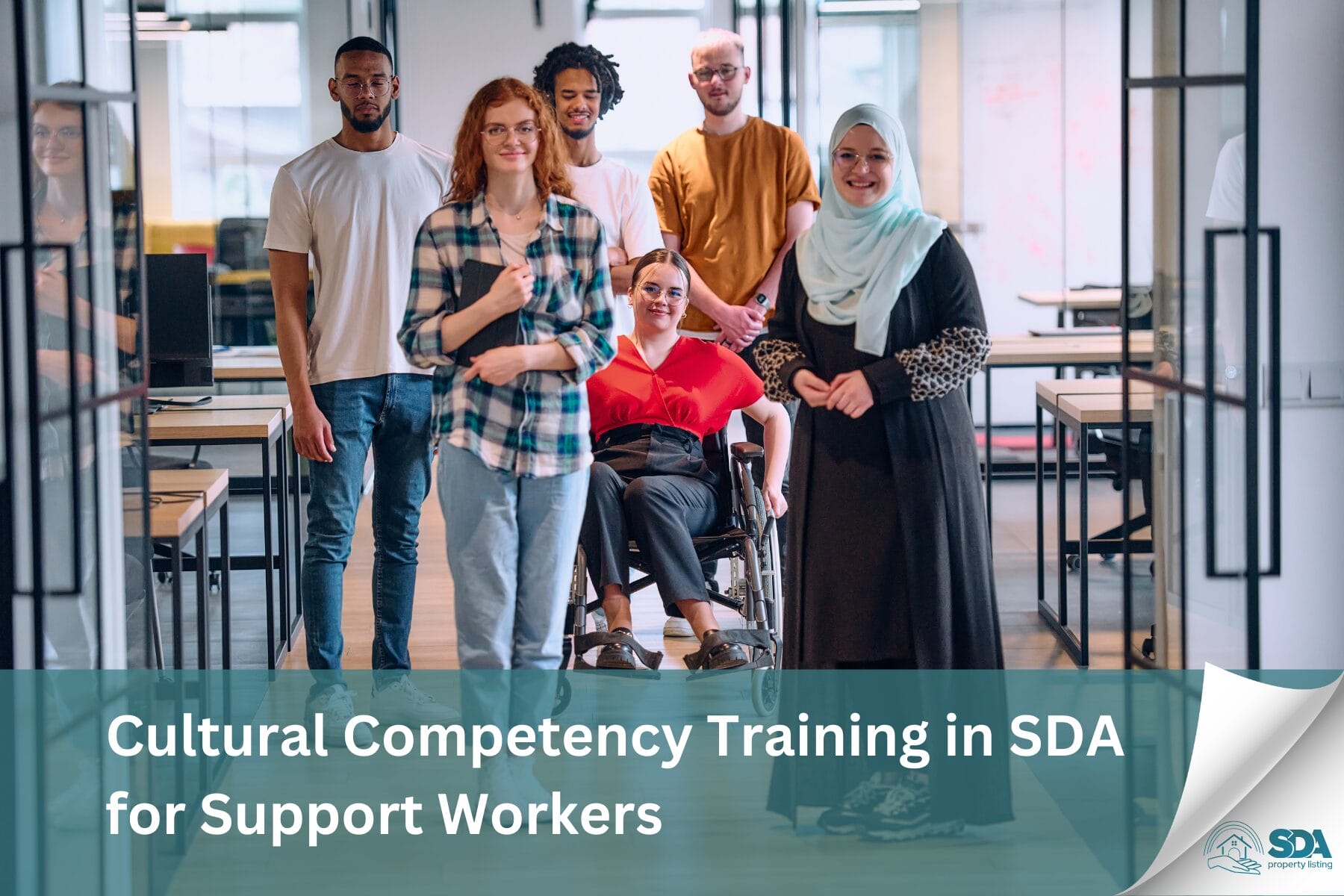
Cultural Competency Training in SDA for Support Workers
In the realm of Specialized Disability Accommodation (SDA Property listing), providing exceptional support to individuals with disabilities is paramount. The National Disability Insurance Scheme (NDIS) has set high standards for care, emphasizing the need for support workers to be culturally competent. This blog delves into the importance of cultural competency training for SDA support workers , offering insights into its benefits and how it can be effectively implemented.
Understanding Cultural Competency in SDA
Cultural competency means the way support workers can behave and give services in a way that is culturally responsive, and their knowledge and experience can help them as they communicate and interact with people across cultures In SDA setting, this competence is crucial as it helps in doing so that the support services become culturally sensitive and suitable to individuals with disabilities. As Australian multiculturalism is a given fact, SDA is not an exception and it becomes obvious, that the staff members have to be equipped for the cultural differences adequately.
The Role of NDIS in Promoting Cultural Competency
The NDIS focuses on delivering personalized aid to people with disabilities in regard to the culture of the society. For the purposes of maintaining the high-quality care, NDIS requires SDA providers to execute cultural competency training for their employees. This program allows for support workers to be fully prepared for the cultural issues that participants might encounter, which in turn is beneficial in terms of service objectives and participant satisfaction.
The Importance of Cultural Competency Training
Cultural competency training is not merely an optional add-on; it is essential for several reasons:
- Enhanced Support Quality: Culturally competent support workers can offer more personalised and effective care, understanding the unique needs and preferences of individuals from diverse backgrounds.
- Building Trust: When support workers respect and acknowledge cultural differences, it fosters a trusting relationship between them and the individuals they support.
- Compliance with NDIS Standards: The NDIS emphasizes the importance of cultural sensitivity. Training ensures that SDA providers meet these standards, enhancing their reputation and compliance.
- Workplace Harmony: A culturally competent team can work together more harmoniously, respecting each other’s backgrounds and perspectives.
Key Components of Cultural Competency Training
To be effective, cultural competency training should encompass several key components:
- Awareness and Education
Training should start with educating support workers about different cultures, including their customs, traditions, and social norms. This awareness forms the foundation of cultural competency.
- Communication Skills
Effective communication is critical in SDA settings. Training should focus on teaching support workers how to communicate respectfully and effectively with individuals from diverse cultural backgrounds.
- Practical Applications
Support workers should be trained on how to apply cultural knowledge in practical scenarios. This includes understanding dietary restrictions, religious practices, and cultural attitudes towards disability and care.
- Reflective Practice
Encouraging support workers to reflect on their own cultural biases and how these may impact their work is crucial. Reflective practice helps in developing empathy and understanding towards individuals from different backgrounds.
Implementing Cultural Competency Training in SDA
For SDA providers looking to implement cultural competency training, here are some steps to consider:
- Assess Training Needs
Conduct an assessment to identify the specific cultural competency needs of your support workers. This could involve surveys, interviews, and feedback from the individuals receiving support.
- Develop a Comprehensive Training Program
Based on the assessment, develop a training program that covers all essential aspects of cultural competency. Consider involving cultural experts and individuals from diverse backgrounds in the training process.
- Ongoing Training and Support
Cultural competency training should not be a one-time event. Provide ongoing training sessions and resources to ensure that support workers continually enhance their skills.
- Evaluate and Improve
Regularly evaluate the effectiveness of your training program through feedback and performance assessments. Use this information to make continuous improvements to the training.
Cultural competency trainings become a must-have for the successful provision of assistance in Specialized Disability Accommodation. It assists in improving care, fostering trust, ensuring compliance, and maintaining good relations. With the multiculturality of Australia coming into the picture, cultural competency in the SDA will expand further. SDA providers can provide the top-level of care and be compliant with NDIS standards by investing in cultural competency training for support workers which will ensure that the providers respect the variety of backgrounds of the individuals.
REFERENCES:






